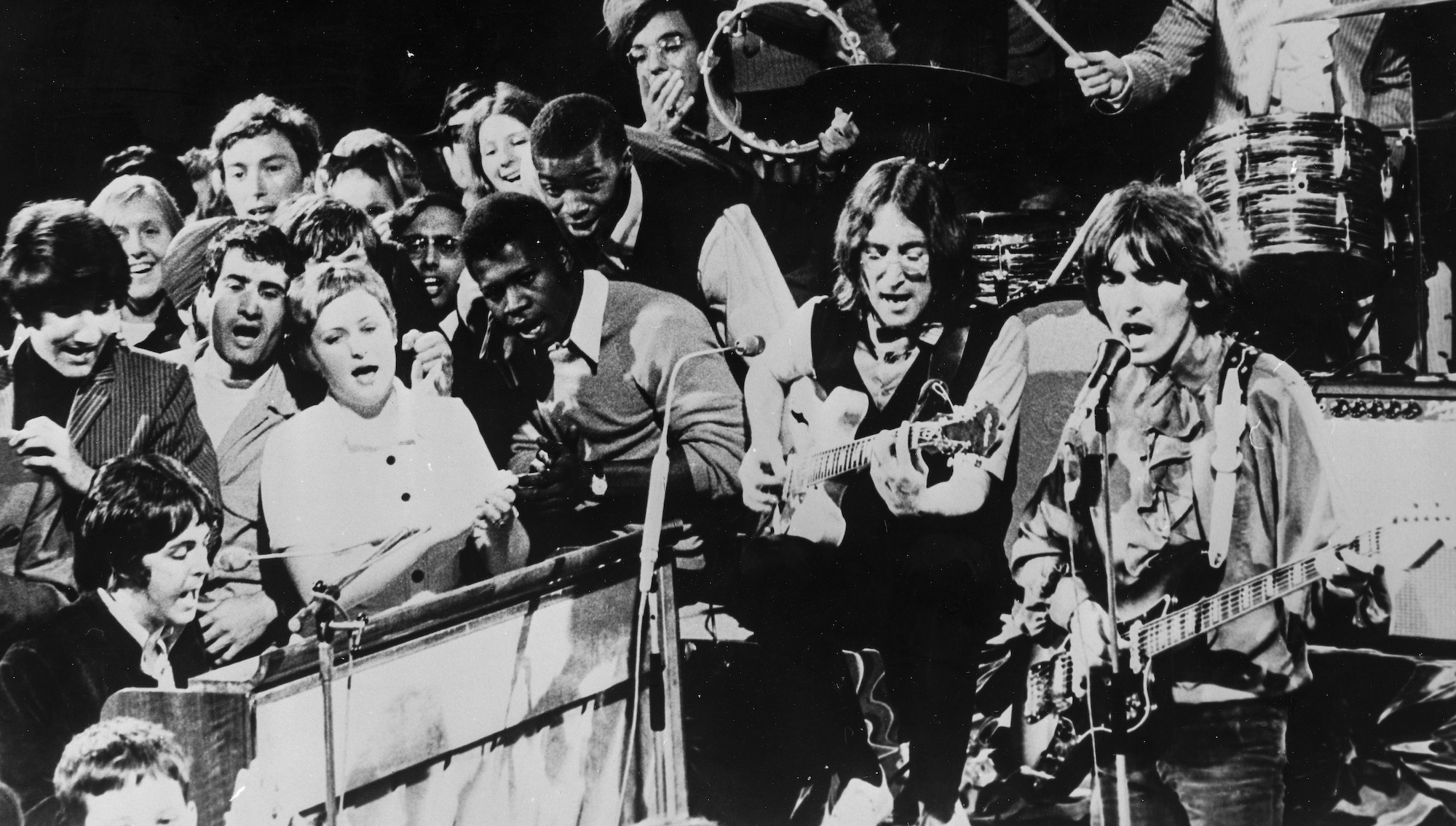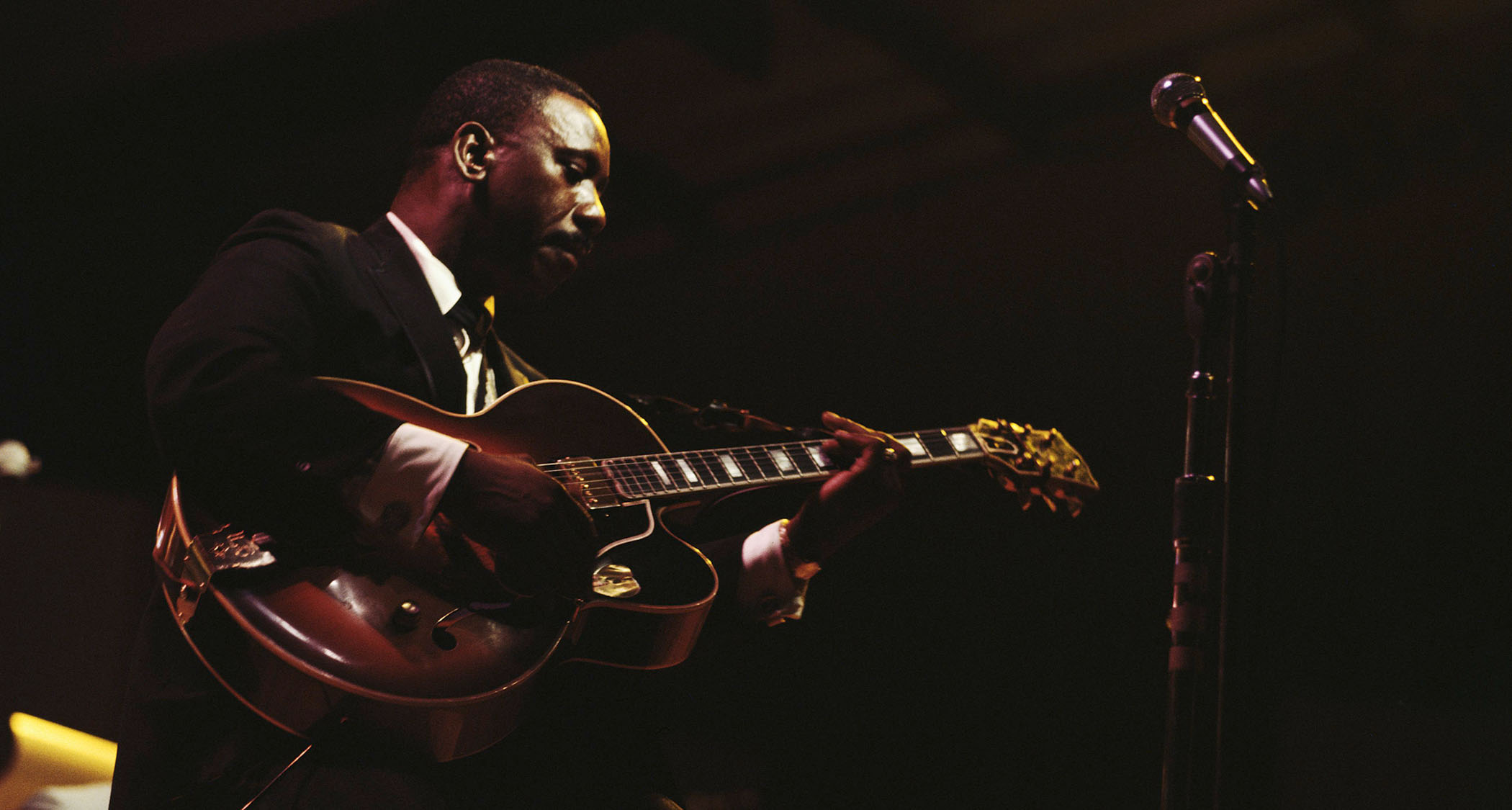“It was a bit of a number for me to have to dare to tell George Harrison not to play guitar. It was like an insult”: Paul McCartney turned down George Harrison's proposed guitar parts for Hey Jude
Harrison suggested answering each of McCartney's lines with a guitar phrase, an addition McCartney saw as unnecessary

Even in the Beatles' ever-ubiquitous catalog, Hey Jude occupies a special place.
Written by Paul McCartney as a pick-me-up for John Lennon's son, Julian, in the wake of his parents' divorce, Hey Jude has racked up – in less than a decade on Spotify – over 600 million streams, and is ranked #13 on Billboard's list of the Greatest Hot 100 Songs of All Time, the Fab Four's highest entry on the list.
With the exception of Let it Be, McCartney has played Hey Jude at more of his solo shows than any other song, its infectious sing-along chorus even serving as the climax of his performance at the closing ceremony of the 2012 London Olympics.
There's a lot more in the way of staggering numbers, but you get the point – it's a song that perfectly embodied the idealistic side of the '60s, a balm of musical unity in the face of a year scarred by protests, assassinations, and war.
Though Hey Jude will ultimately always be associated with its uplifting message, and those sunny “na-na-na-na”s, the sessions that produced it nonetheless bore witness to elements of the creative tension that in just two years' time would unspool the most successful band in music history.
Speaking to Guitar World in 1997, McCartney recalled that George Harrison – looking for a way to contribute to the song – suggested answering each of McCartney's lines with an electric guitar phrase, an addition McCartney saw as unnecessary.
Though he ultimately held firm in his conviction, McCartney tried to be as delicate as possible in expressing those convictions.
Get The Pick Newsletter
All the latest guitar news, interviews, lessons, reviews, deals and more, direct to your inbox!
I tried to be nice, I said, ‘No, George, I really don't hear it, I don't think that's gonna work’
“I remember telling George not to play guitar on Hey Jude. He wanted to echo riffs after the vocal phrases, which I didn't think was appropriate,” he told Guitar World. “He didn't see it like that, and it was a bit of a number for me to have to dare to tell George Harrison – who's one of the greats, I think – not to play guitar. It was like an insult.”
Speaking to Howard Stern about the conflict over the song in 2018, McCartney elaborated, “the rule in the Beatles was, if it was your song, you were allowed to call it – you were the boss of the song.
“I tried to be nice, I said, ‘No, George, I really don't hear it, I don't think that's gonna work.’ I think he was a bit miffed.”
The disagreement – occurring in the midst of the sessions for what would become “the White Album” – added to Harrison's increasing frustration with Lennon and especially McCartney, who he felt weren't taking his ideas, or songs, seriously. An increase in similar incidents over the course of the White Album sessions would lead Harrison, McCartney, and Lennon increasingly down their own artistic paths.
Famously, when the Beatles' main songwriting duo expressed indifference – around that time – towards a new composition of his, While My Guitar Gently Weeps, Harrison took matters into his own hands, recruiting Eric Clapton for an uncredited solo that's widely regarded as one of the greatest of all time.
Using the same “boss of the song” rule, Harrison talked a reluctant Clapton into lending his talents to what was originally a delicate, folky number.
“I said [to Clapton], ‘Well, damn it, it's my song and I'd like you to come down.’ Which he did,” Harrison told Guitar World in 1997. “And,” he added with a laugh, “everybody behaved, and the song came together quite nicely.”
Jackson is an Associate Editor at GuitarWorld.com. He’s been writing and editing stories about new gear, technique and guitar-driven music both old and new since 2014, and has also written extensively on the same topics for Guitar Player. Elsewhere, his album reviews and essays have appeared in Louder and Unrecorded. Though open to music of all kinds, his greatest love has always been indie, and everything that falls under its massive umbrella. To that end, you can find him on Twitter crowing about whatever great new guitar band you need to drop everything to hear right now.
“The rest of the world didn't know that the world's greatest guitarist was playing a weekend gig at this place in Chelmsford”: The Aristocrats' Bryan Beller recalls the moment he met Guthrie Govan and formed a new kind of supergroup
Carlos Santana hospitalized following pre-show medical emergency





![[from left] George Harrison with his Gretsch Country Gentleman, Norman Harris of Norman's Rare Guitars holds a gold-top Les Paul, John Fogerty with his legendary 1969 Rickenbacker](https://cdn.mos.cms.futurecdn.net/TuH3nuhn9etqjdn5sy4ntW.jpg)







